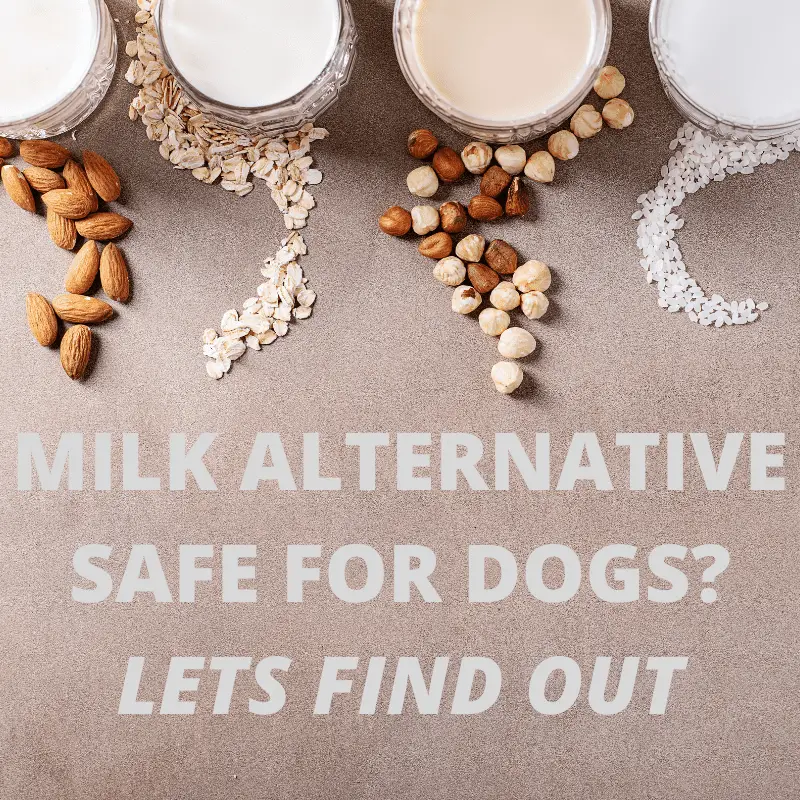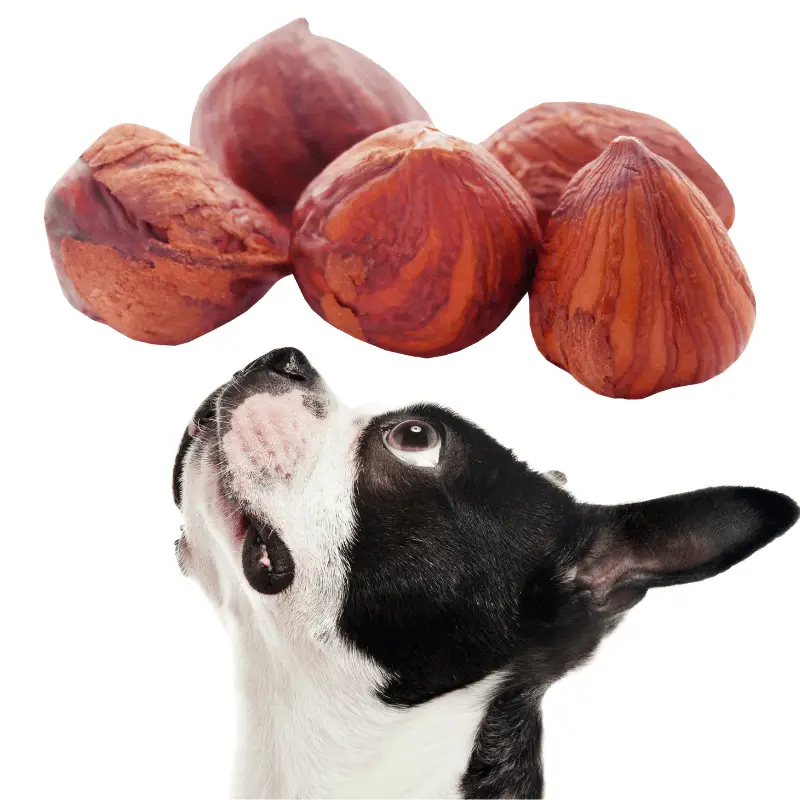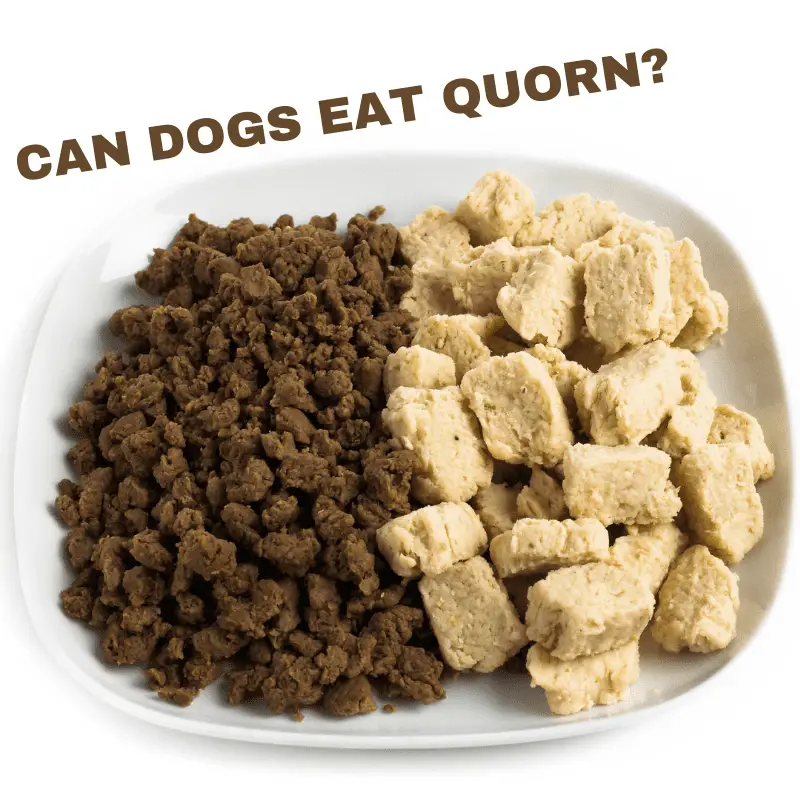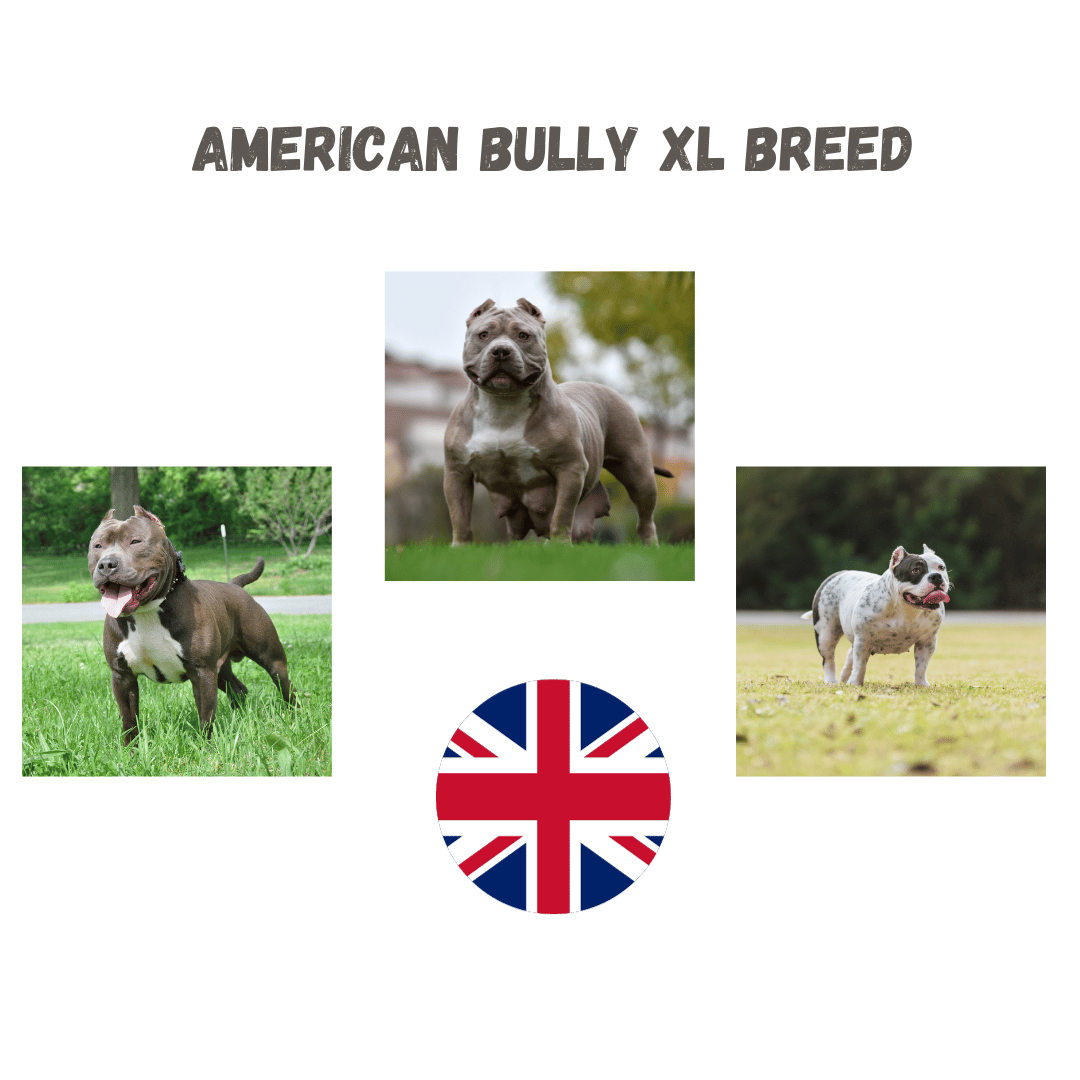As pet owners, we often indulge our furry friends with treats. However, it’s important to note that dogs should primarily consume water for optimal health. Nonetheless, if you’re curious whether plant-based milk options suit your pup, let’s explore which alternative is the most secure choice.
Although specific plant-based milk options are safe for dogs, it’s best to steer clear of soy milk, coconut milk, and products that contain stabilisers, xanthan gum or artificial sweeteners such as xylitol. These ingredients can be harmful to our furry friends.
Some dogs are lactose intolerant, which means they lack the enzyme to break down the lactose found in dairy milk. Therefore, giving them cow’s milk or other animal-based milk products is not recommended. Plant-based alternatives such as almonds, soy, oat, and coconut milk may be better for dogs since they do not contain lactose.
However, it is essential to note that plant-based milk should never replace water as your dog’s primary hydration source. Additionally, always consult with a veterinarian before introducing new foods into your dog’s diet to ensure that it is safe and healthy for them.
Are all dogs lactose intolerant? No, not all dogs are lactose intolerant. Some dogs may have a genetic predisposition to lactose intolerance, while others may be able to digest dairy products without any issues. However, it is essential to note that feeding dogs large amounts of dairy products can lead to gastrointestinal upset and should be avoided.
What does plant-based milk mean?
Plant-based milk refers to non-dairy milk alternatives made from plant sources such as nuts, seeds, grains or legumes. These kinds of milk are suitable for avoiding dairy products due to dietary restrictions or personal preferences. Popular plant-based milk types include almond, soy, oat, and coconut. They can be used the same way as regular cow’s milk in cooking and baking or consumed as a beverage.
Different Types of Plant-Based Milk Options
Coconut Milk
Coconut milk is a milky-white liquid used as an alternative to dairy milk. Coconut milk is made from mature coconut pulp, shredded, blended, mixed with hot water, and drained. Coconut Milk is different from tinned coconut juice. Coconut juice is from the middle part of the coconut.
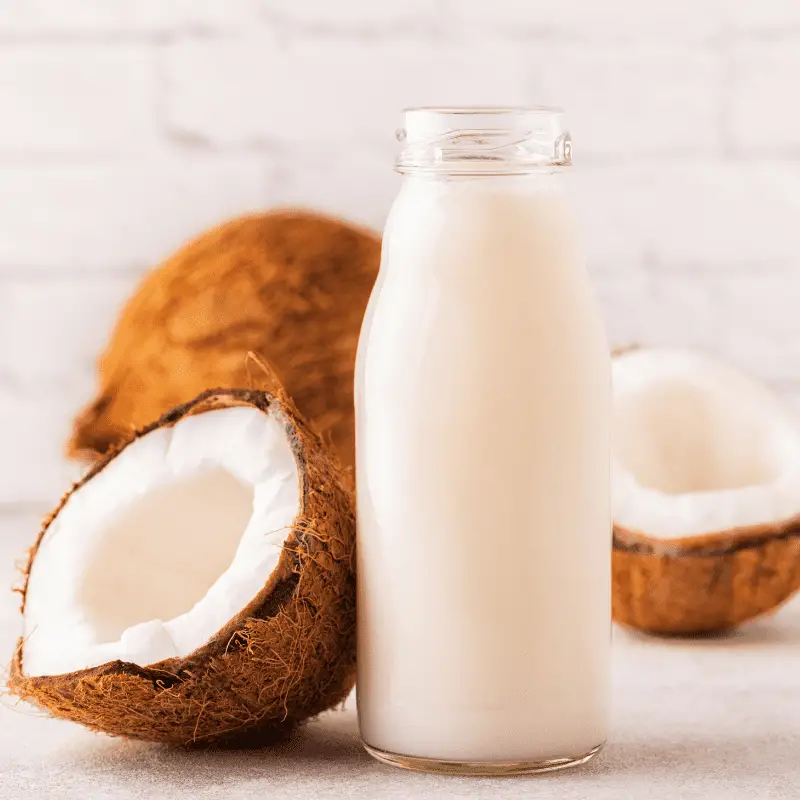
Coconut Milk
Can dogs drink coconut milk? Coconut milk can cause some dogs an upset stomach down to the coconut’s high oil content. It would be best if you did not give your dog coconut milk.
Soya Milk
Soya milk comes from blending, then boiling soybeans and mixing them with water. Soya milk has many added nutrients, such as vitamins A and B, calcium, folate, and retinol. Please, be aware that allergies to soya milk can be pretty common in dogs.
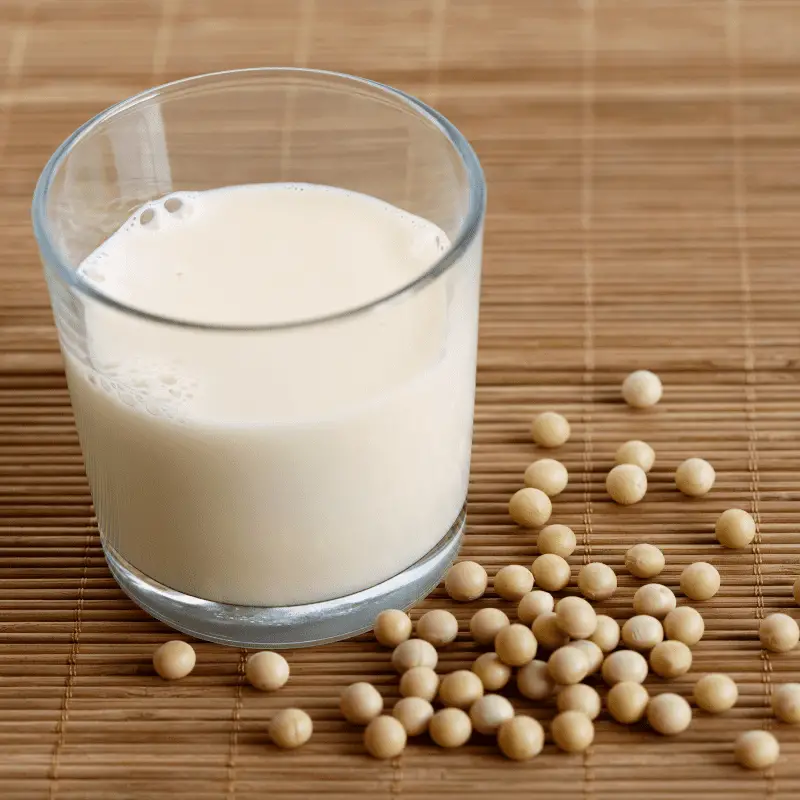
Soya Milk
Can dogs drink soya milk? Soya milk is okay for some dogs; however, many dogs appear prone to allergies to this type of milk. I recommend not giving your dog soya milk unless you’re sure it does not risk your dog’s health.
Cashew Milk
Cashew milk is a good source of vitamins like calcium, B2, B12, and vitamin D. Cashew milk is nutty in flavour and has a creamy texture made by soaking the cashew nuts, blending and adding water. It’s then drained and packaged for consumption.
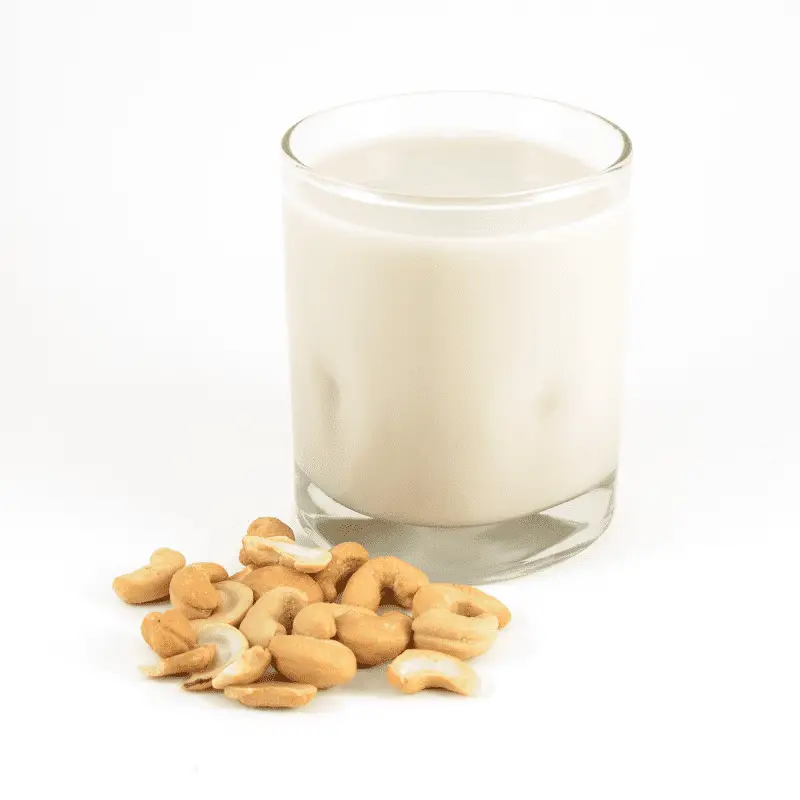
Cashew Milk
Can dogs drink cashew milk? Cashew milk, in moderation, is safe for dogs to drink. However, please be aware that water is always best for dogs; adding milk adds extra calories to a dog’s diet.
Oat Milk
Oat Milk is a creamy oat-tasting milk with many nutrients like fibre, calcium, vitamin D and riboflavin. It is produced by soaking whole oats and mixing them in water.
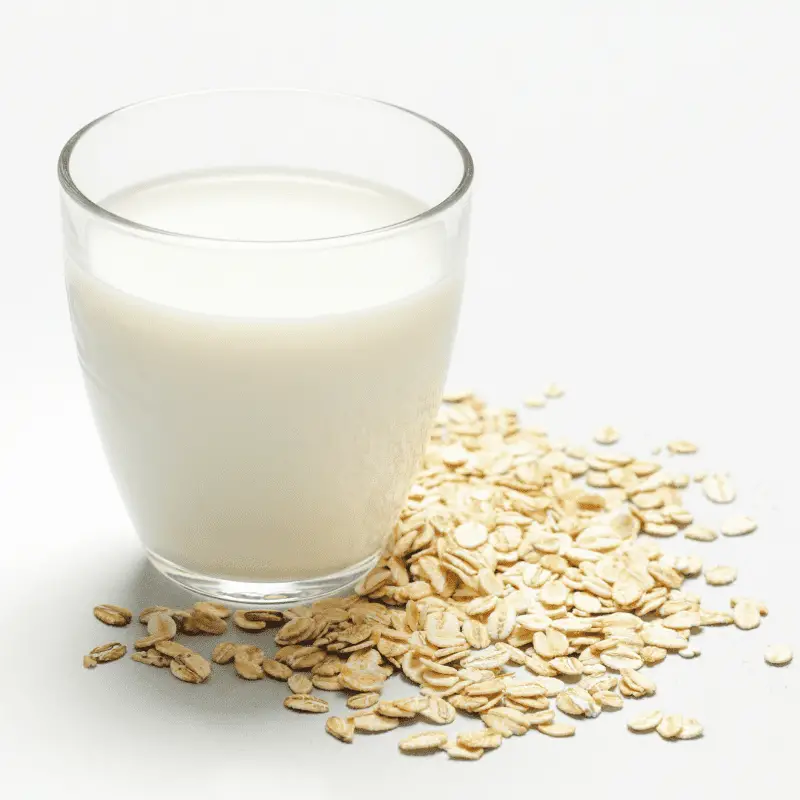
Oat Milk
Can dogs drink oat milk? Oak milk is high in fibre and can cause stomach upsets in dogs. Dogs can have oat milk once in a while, do not feed your dog oat milk daily; your dog’s size will depend on how much you can give your dog.
Rice Milk
Rice milk is generally popular for lactose-intolerant humans or pets with a nut allergy. It is produced by boiling brown or white rice and draining the excess liquid to create rich milk. Rice milk has minor nutrients in the selection of plant-based milk. Rice milk has the highest environmental impact on the planet among all plant-based milk.
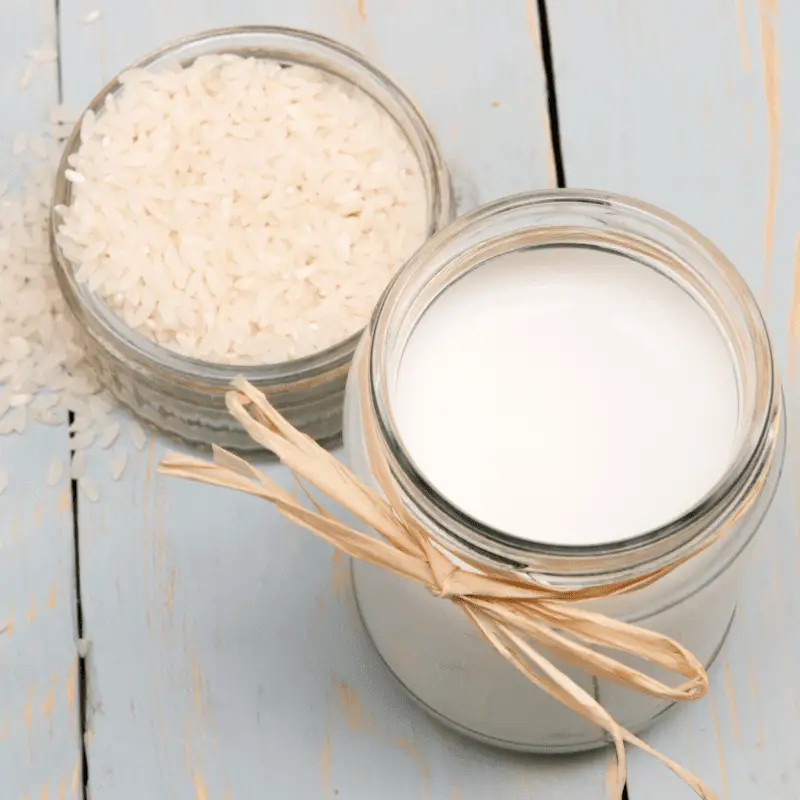
Rice Milk
Can dogs drink rice milk? Although rice milk is not detrimental to your dog’s health, in small amounts, it can lead to obesity due to the number of carbs it has per portion.
Hemp Milk
Hemp milk is produced from a plant (Cannabis Sativa) using its seeds blended and mixed with water. Hemp milk is mixed with sugar and salt to give it added flavour. Hemp milk is an excellent source of calcium and can effectively replace cow’s milk, and it’s much similar in taste to cow’s milk. Currently unavailable in all shops, you can access some more giant retailers online. There have been reports of improvement in dogs from hemp to treat pain like arthritis, seizures, inappetence, and cognitive dysfunction.
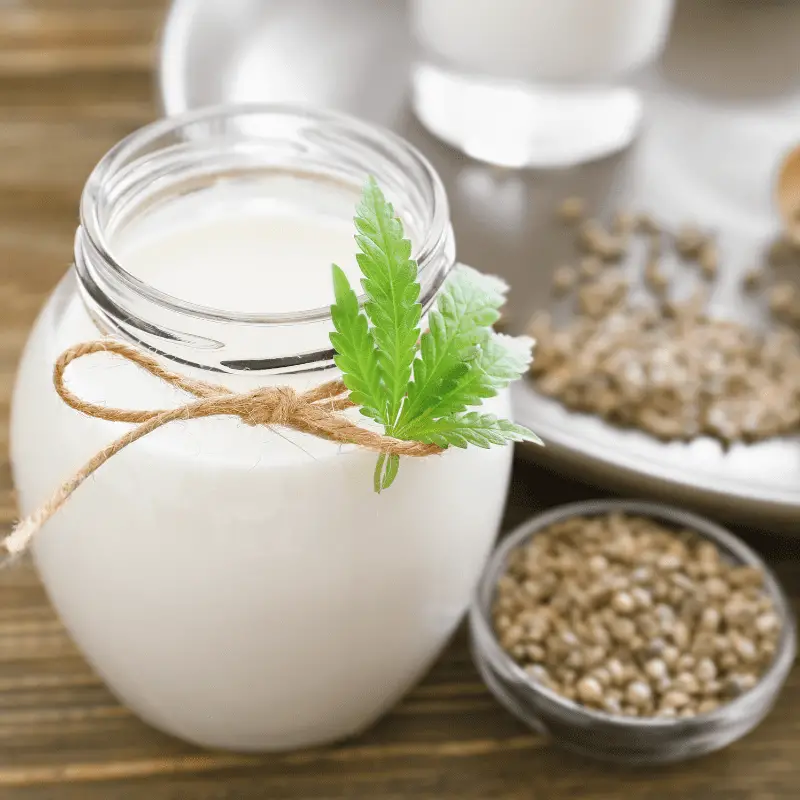
Hemp Milk
Can dogs drink hemp milk? Dogs can drink hemp milk in moderation; however, considering the sugar and salt content, you should seek personal veterinary advice before offering it to your dog.
Pea Milk
Pea Milk has one of the most complex manufacturing processes of all plant-based milk. It is made by harvesting yellow split peas and milling them into flour, and the liquid protein is then separated from the starch and pea fibre leaving creamy pea milk, and guess what? It doesn’t even taste like peas.
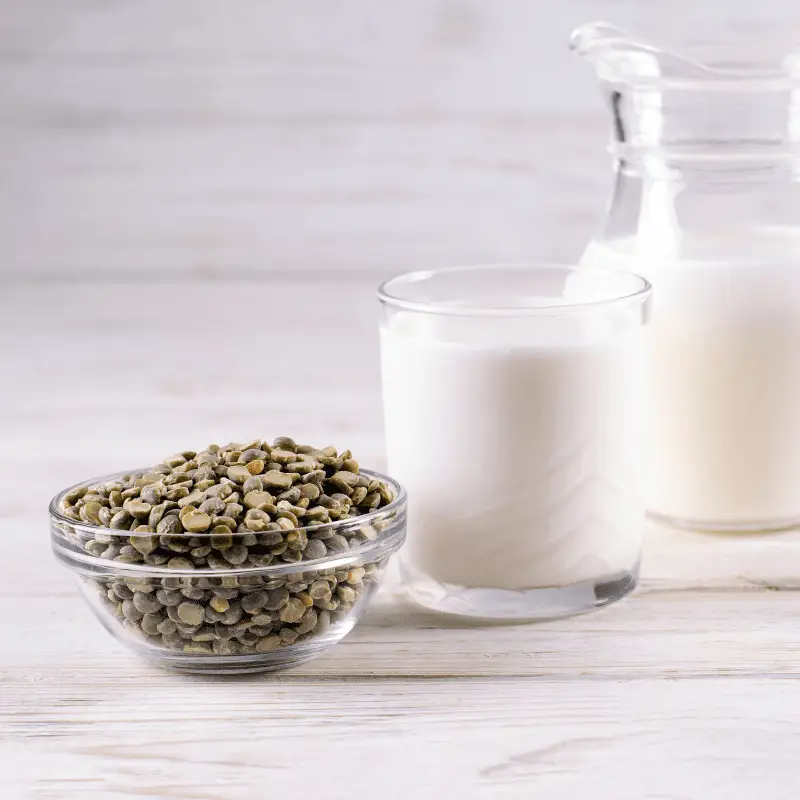
Pea Milk
Can dogs drink pea milk? Dogs can only drink pea milk in moderation; however, you should check the carton’s back for nasty ingredients such as high sugar, salt, and artificial sweeteners. Each brand will be slightly different.
Hazelnut Milk
Hazelnut milk is produced from hazelnuts that have been roasted, then soaked and blended with water. Hazelnut milk is high in calcium as well as folate. It’s a very nutty flavour with a creamy texture.
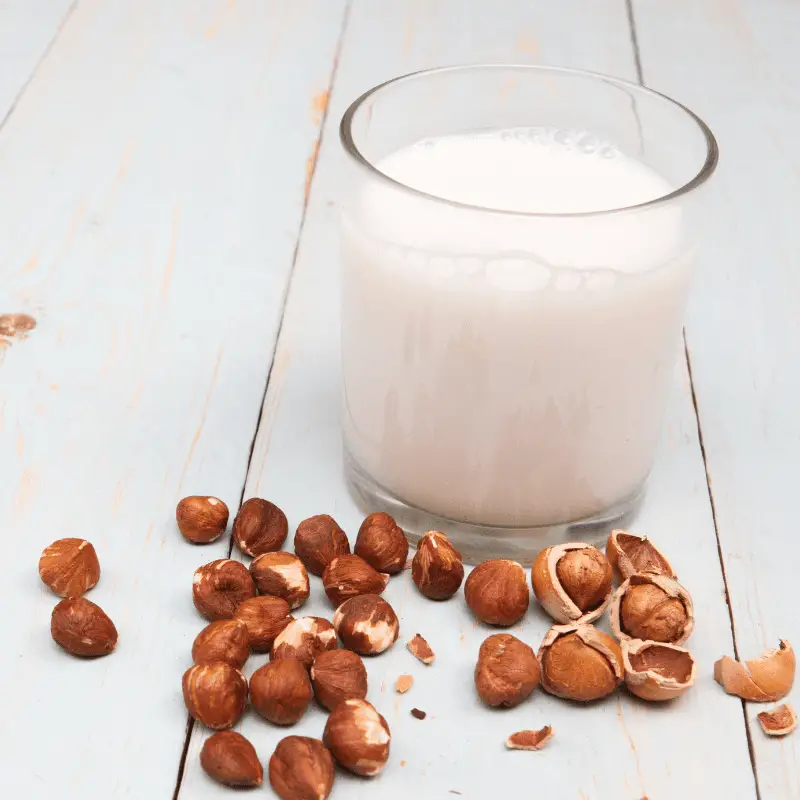
Hazelnut Milk
Can dogs drink hazelnut milk? It’s never recommended to replace your dog’s water with plant-based dairy; however, hazelnut milk is only safe for dogs in moderation. Ensure it is an unsweetened version, or your dog will have too much sugar or artificial sweetener, which is highly toxic to dogs.
Tiger Nut Milk
Tiger nuts are little root vegetables, high in calcium, magnesium, potassium, sodium and phosphorus and rich in vitamins E and C. It has a nutty flavour that is creamy and naturally sweet and is perfect for nut allergies. They are made by soaking the tiger nut in water and blending.
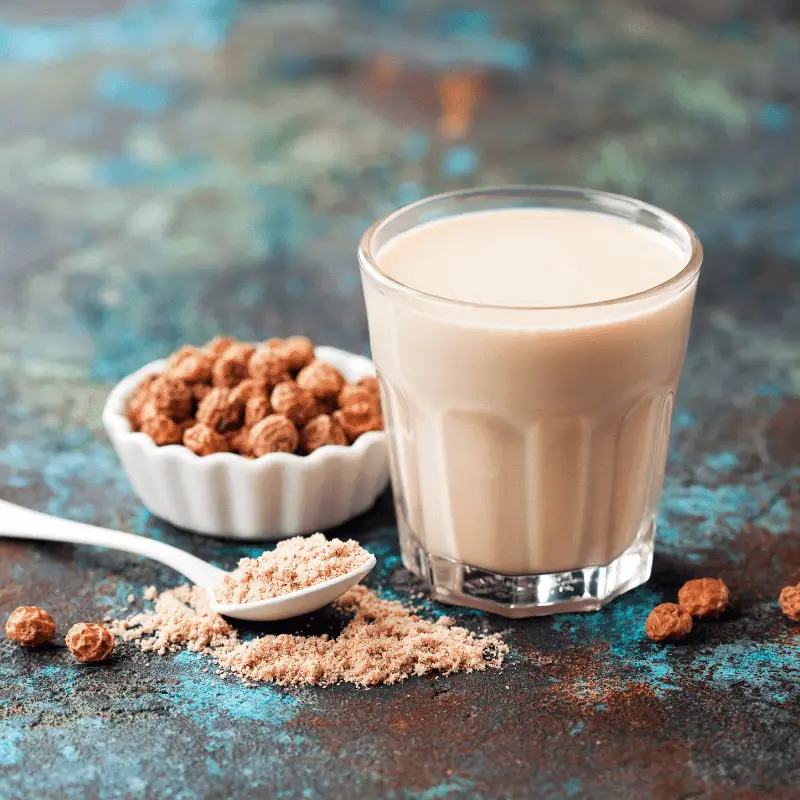
Tiger Nut Milk
Can dogs drink tiger nut milk? Tiger nut milk shouldn’t cause your dog any health problems if provided in moderation, be aware of the ingredients that vary across brands. Never give your dog artificial sweetener, so check the back of the carton to check for any harmful components.
Almond Milk
Almond milk is similar to cashew milk, and it’s made by soaking, blending almonds with water and draining the liquid to create the milk substance. It’s naturally high in antioxidants and vitamin E.
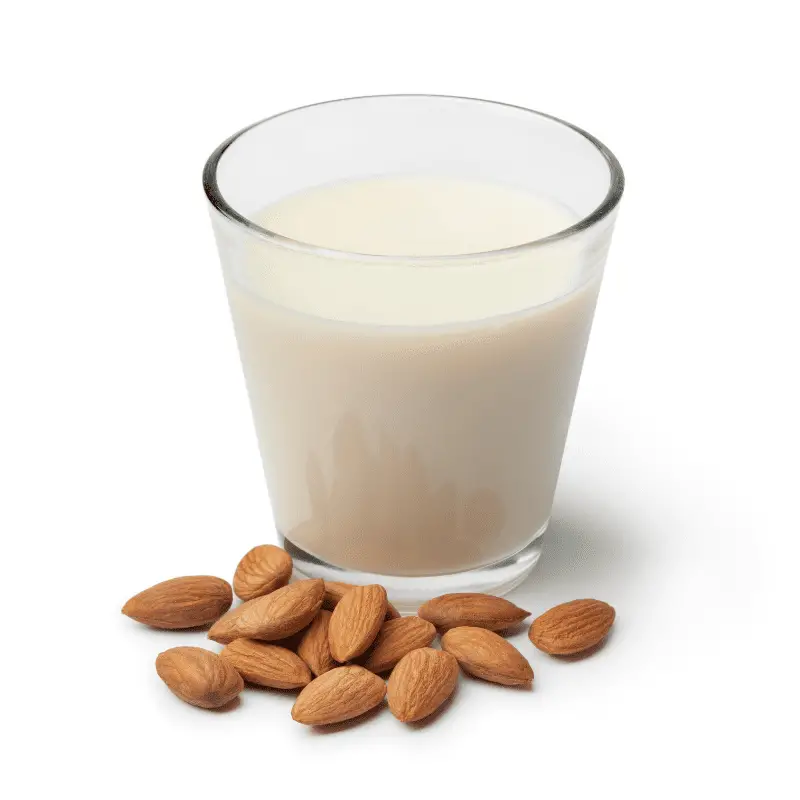
Almond Milk
Can dogs drink Almond milk? Dogs can drink a small amount of almond milk, but be cautious of the calorie content since it’s high in fat. Your dog must not consume too much. Make sure you read the label making sure it’s the unsweetened version. Giving your human-made dog sweeteners can cause serious health issues.
Precautions to Take Before Feeding Your Dog Plant-Based Milk
Carefully scrutinising the label for ingredient details is essential to ensure your dog’s safety. Although different milk manufacturers make slight changes in their product ingredients, some may contain higher levels of salt and sugar than others. In addition, they may incorporate stabilisers like guar gum or gellan gum to increase the thickness of the liquid. Furthermore, certain brands may use artificial sweeteners instead of natural sugar, harming your pet’s health.
Artificial Sweetener
It is crucial to avoid offering your dog any plant-based milk that contains substitutes for sugar, such as sweeteners. These artificial additives are harmful to dogs and can result in serious health complications, including hypoglycemia (low blood sugar), liver damage, and kidney failure. Therefore, always keeping your furry friend’s diet free from these toxic substances is imperative.
Disguised Artificial Sweetener Label Names to Check for:
- Aspartame
- Sucralose
- Saccharin
- Acesulfame potassium (Ace-K)
- Neotame
- Advantame
- Stevia (a natural sweetener but often used as an artificial sweetener in processed foods)
- Cyclamate (not currently approved for use in the US)
Stabilisers
Stabilisers can irritate your pet’s stomach lining; they are used to thicken up the milk and improve its mouthfeel.
Stabilizers Lable Names to Check for:
- Carrageenan
- Pectin
- Gellan Gum
- Guar Gum
- Locust Bean Gum
- Microcrystalline cellulose (MCC)
For any uncertainties, contacting your veterinarian and seeking professional advice tailored to your dog’s needs is highly recommended. Your vet can provide valuable insights into their recommendations, considering any underlying health conditions that may affect the consumption of plant-based milk products.
Amount
| Dogs size | Recommended amount (no more than twice a week) |
|---|---|
| Toy | 20ml |
| Miniature | 30ml |
| Small | 50ml |
| Medium | 75ml |
| Large | 100ml |
| Extra-large | 110ml |
Allergy Symptoms in dogs
- Vomiting
- Lethargy
- Seizures
- Weakness
- Itchiness
- Swelling of the face, ears, lips, eyelids
If any signs of the above symptoms, you must contact a veterinary professional.
Top Plant-Based Dairy Product that Ensures Maximum Safety for Your Dog’s Consumption
While plant-based milk may seem like a viable alternative for dogs, it can carry certain risks. If you still wish to offer your dog plant-based milk, cashew milk is considered the safest option among available varieties. However, it’s important to note that water is the safest choice overall for canine hydration and nutrition. As much as we love our furry friends and want to share our food with them, sometimes being responsible means making difficult choices and prioritising their health and safety over overindulgence.
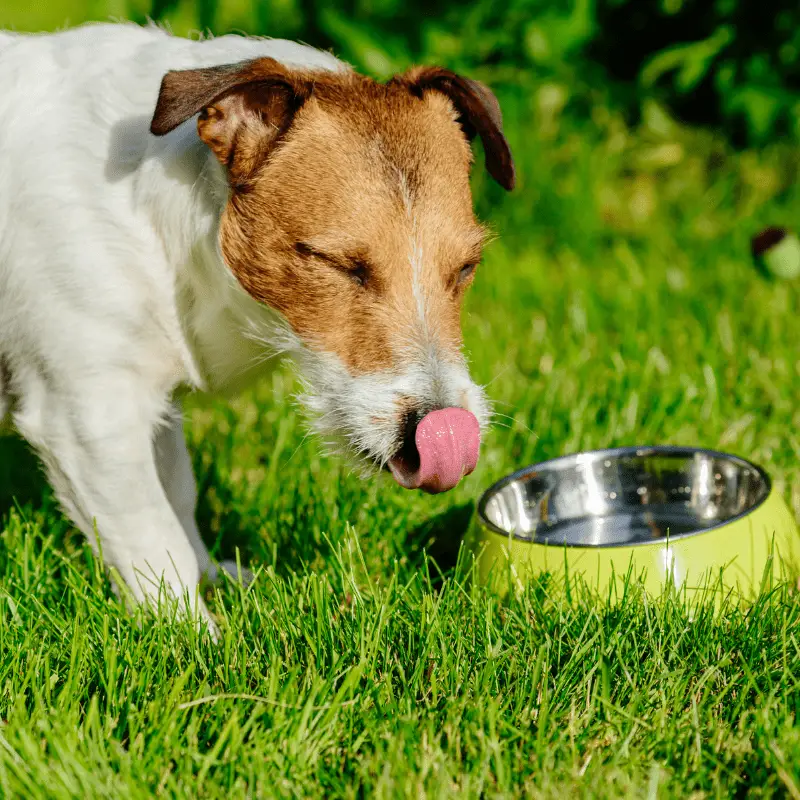
Cashew milk wins the safest plant-based milk for dogs
Is it safe for my puppy to drink plant-based milk? It is not recommended for puppies to consume plant-based milk as they require their mother’s milk or specially formulated puppy formula to grow healthy. It is best to consult with a veterinarian for further guidance on your furry friend’s appropriate diet and nutrition.
Summary
Cashew milk is a safe option for dogs, and knowing the appropriate amount to give them is essential. To determine this, check the labels and ensure the listed ingredients suit your furry friend. Remember that water should always be their primary source of hydration, and plant-based milk should never replace it entirely. If you’re still unsure about giving your dog plant-based milk, consider an allergy test or consult your veterinarian for personalised guidance on incorporating new items into their diet.

